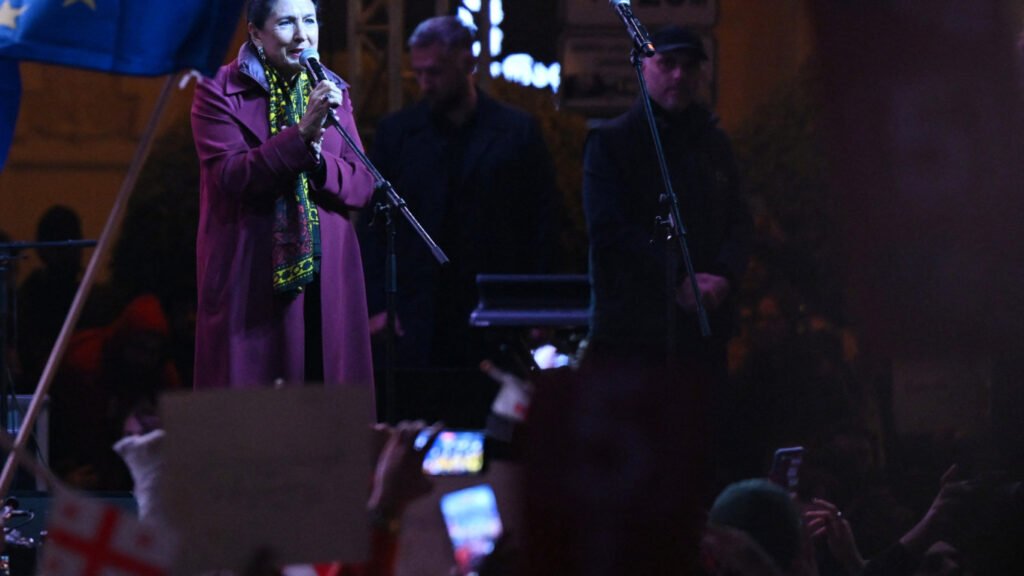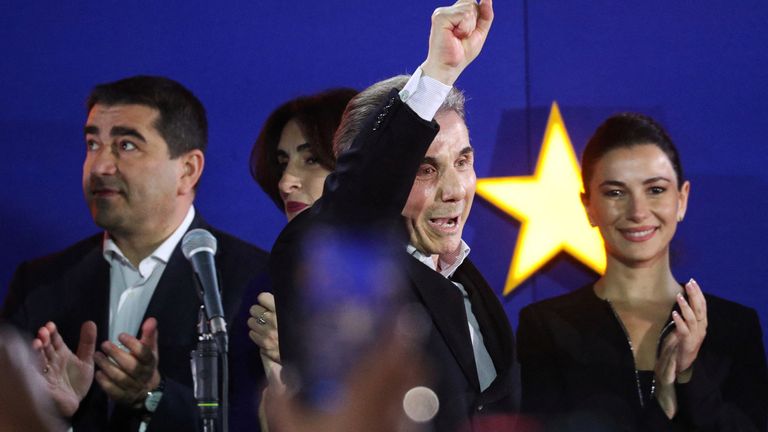The Georgian opposition has called for protests and the European Union has demanded an investigation into alleged irregularities in the disputed legislative election held on Saturday. The election, seen as a crucial test of democracy in the Caucasus country, showed a win for the ruling Georgian Dream party, which has been accused of moving towards Russia’s orbit.

Pro-Western President Salome Zurabishvili accused Moscow of being behind the election fraud, calling it a “Russian special operation.” She has called for a rally on Monday, while jailed former president Mikheil Saakashvili has also called for mass protests.
The European Union had warned that the vote could determine Tbilisi’s chances of joining the bloc. EU Council President Charles Michel wrote on X (formerly Twitter) that Georgian authorities should “swiftly, transparently and independently investigate and adjudicate electoral irregularities and allegations thereof.”
International observers said the election was “marred by an uneven playing field, pressure and tension,” with an EU parliament mission expressing concern about “democratic backsliding” and instances of “ballot box stuffing” and “physical assault” of observers.
Official tallies from more than 99% of precincts showed the ruling Georgian Dream party winning 54% of the vote, with the main pro-Western opposition coalition on 37.5%. The result gives Georgian Dream 91 seats in the 150-member parliament, enough to govern but short of the supermajority needed to pass a constitutional ban on all main opposition parties.

Opposition parties have denounced the vote, with Tina Bokuchava, leader of Saakashvili’s United National Movement (UNM), calling it “an attempt to steal Georgia’s future.” Nika Gvaramia, leader of the liberal Akhali party, described the way the vote was held as “a constitutional coup” by the government.
Analyst Gela Vasadze of the Georgian Strategic Analysis Center said the country was plunging “into political instability for an indefinite period” and that its EU hopes had “dimmed.” However, he noted that the opposition lacked “charismatic leaders who could channel popular anger into a protest wave capable of bringing about political change.”
Georgia has been gripped by mass demonstrations this year against what the opposition saw as government attempts to curtail democratic freedoms and steer the country of four million off its pro-Western course and towards Russia.
In power since 2012, Georgian Dream initially pursued a liberal pro-Western policy agenda but has reversed course over the last two years. Its campaign centered on a conspiracy theory about a “global war party” that controls Western institutions and is seeking to drag Georgia into the Russia-Ukraine war.
The ruling party’s controversial “foreign influence” law, which targeted civil society, sparked weeks of street protests and was criticized as a Kremlin-style measure to silence dissent. The move prompted Brussels to freeze Georgia’s EU accession process, while Washington imposed sanctions on dozens of Georgian officials.



